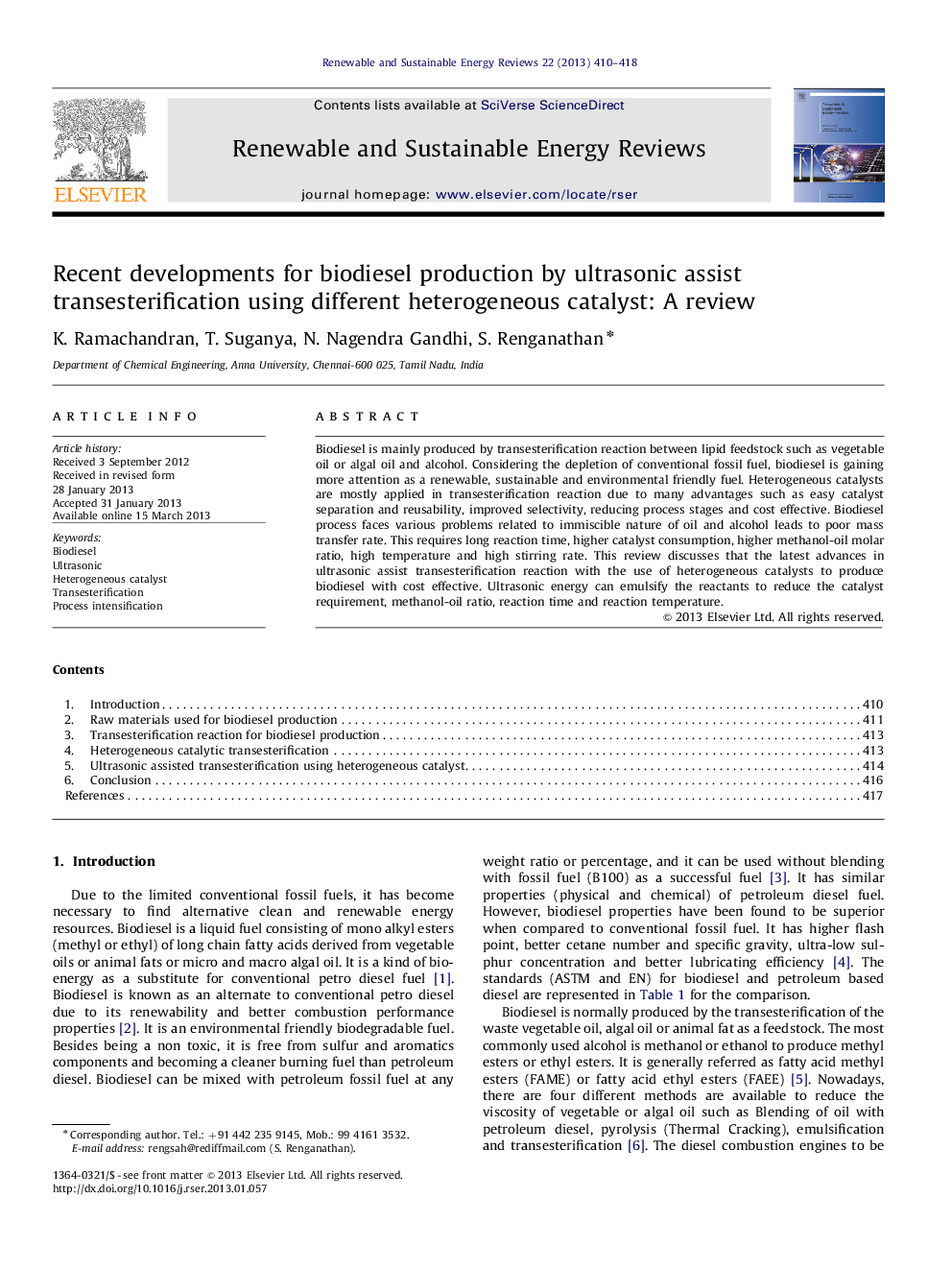| Article ID | Journal | Published Year | Pages | File Type |
|---|---|---|---|---|
| 8122174 | Renewable and Sustainable Energy Reviews | 2013 | 9 Pages |
Abstract
Biodiesel is mainly produced by transesterification reaction between lipid feedstock such as vegetable oil or algal oil and alcohol. Considering the depletion of conventional fossil fuel, biodiesel is gaining more attention as a renewable, sustainable and environmental friendly fuel. Heterogeneous catalysts are mostly applied in transesterification reaction due to many advantages such as easy catalyst separation and reusability, improved selectivity, reducing process stages and cost effective. Biodiesel process faces various problems related to immiscible nature of oil and alcohol leads to poor mass transfer rate. This requires long reaction time, higher catalyst consumption, higher methanol-oil molar ratio, high temperature and high stirring rate. This review discusses that the latest advances in ultrasonic assist transesterification reaction with the use of heterogeneous catalysts to produce biodiesel with cost effective. Ultrasonic energy can emulsify the reactants to reduce the catalyst requirement, methanol-oil ratio, reaction time and reaction temperature.
Related Topics
Physical Sciences and Engineering
Energy
Renewable Energy, Sustainability and the Environment
Authors
K. Ramachandran, T. Suganya, N. Nagendra Gandhi, S. Renganathan,
